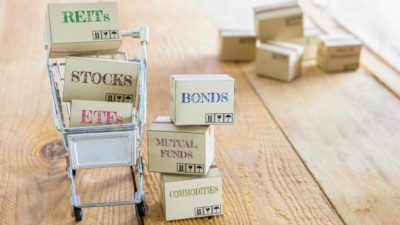One thing that’s certain in life is taxes. They’re one of the biggest expenses we have. Thankfully, there are ways to reduce taxes. Here are some top tips to reduce taxes by investing in stocks.
Dividend stocks
Eligible dividends from Canadian dividend stocks are taxed at a lower rate than your job’s income.
For example, in British Columbia the marginal tax rate for eligible dividends is as low as -6.84% for those with income of $11,328-37,869. Compare that percentage to the B.C. marginal tax rate for ordinary income, which is 20%.
Even when you climb to higher tax brackets, the tax rate of eligible dividends will still be lower than ordinary income. A similar situation applies for all the other provinces and territories.
Some high-yield dividend stocks that pay eligible dividends and are inexpensive today include Royal Bank of Canada (TSX:RY)(NYSE:RY), Telus Corporation (TSX:T)(NYSE:TU), and Fortis Inc. (TSX:FTS). They all yield at least 4% today.
Real estate investment trusts
Real estate investments trusts, or REITs, give the public access to passive real estate investments. REITs pay out distributions that are unlike dividends.
Distributions can consist of other income, capital gains, foreign non-business income, and return of capital. Other income and foreign non-business income are taxed at your marginal tax rate, while capital gains are taxed at half your marginal tax rate.
On the other hand, the return of capital portion reduces your adjusted cost basis. This means that that portion is tax deferred until you sell your units or until your adjusted cost basis turns negative.
So, you can defer some of your income taxes from REITs. Historically, some REITs pay distributions with a high percentage of return of capital or capital gains. Examples include
- NorthWest Health Prop Real Est Inv Trust (TSX:NWH.UN), which pays a 9% yield;
- Dream Office Real Estate Investment Trst (TSX:D.UN), which pays a 12.3% yield; and
- Dream Global REIT (TSX:DRG.UN), which pays a 9.6% yield.
However, there’s no guarantee they’ll continue with that pattern.
Capital gains = tax-deferred gains
High-growth stocks can be held in non-registered (or taxable) accounts. For example, I hold Starbucks Corporation (NASDAQ:SBUX) in my non-registered account. Because it’s a U.S. dividend stock, I get a 15% withholding tax on its dividend. However, it only pays out a 1.3% dividend.
Compared to the income it provides me today, Starbucks’s growth potential is much higher. So, I expect its capital gains to greatly outweigh the income I’ll receive from it. As long as I don’t sell my shares, the unrealized capital gains in this holding will remain tax deferred.
The downside to this strategy to reduce current taxes is that there’s no guarantee that the growth stock you choose will continue growing if you want to sell a few shares when you need the money.
Even growth stocks need a break sometimes. Take Apple Inc. (NASDAQ:AAPL) as an example. It fell from about US$98 (post-split price) in 2012 to about US$56 in 2013, a fall of close to 43%. If shareholders were able to hold on, they would be sitting at $117 today.
In summary
To reduce your taxes, you can buy Canadian stocks that pay out eligible dividends, REITs that pay out high yields with a big portion coming from return of capital or capital gains, and growth stocks where you most returns are from capital gains.
A mixture of these stocks make a good, diversified portfolio.







